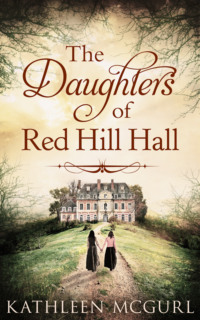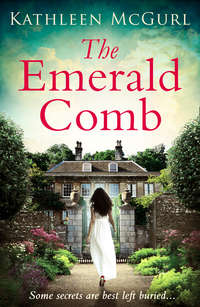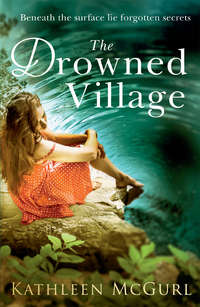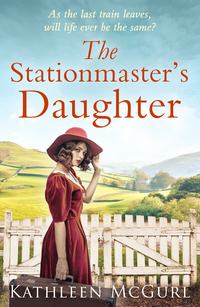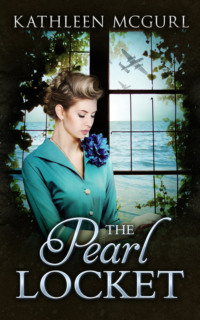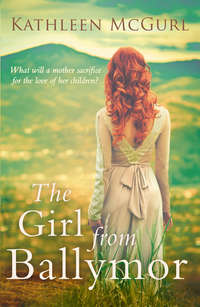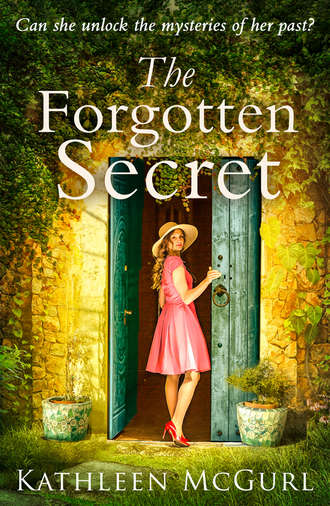
Полная версия
The Forgotten Secret: A heartbreaking and gripping historical novel for fans of Kate Morton
But it was the third good thing to happen that Ellen rated as the best and most exciting; the event she’d been looking forward to for months. It was the news that at long last Jimmy Gallagher was home from school. For good, this time. He was the same age as her, just two months older, and had been away at a boarding school for years, coming home only for the long summer holidays.
It was Mrs O’Flanaghan at the sweetshop who’d told her the news. The old woman remembered how Ellen and Jimmy would call in for a pennyworth of sweets on a Friday after school, back in those long-ago childhood days when they both attended the National School and had been best friends. Jimmy had passed his exams now, and finished high school. ‘Set to become a lawyer, if he goes off to university and studies some more, so he is,’ said Mrs O’Flanaghan. ‘But first he’ll help his daddy with the harvest. And maybe he’ll decide to stay on and become a farmer. Those Gallaghers have such high hopes for him, but I’m after thinking he’s a simple soul at heart, and will be content to stay here in Blackstown now.’
Ellen certainly hoped so. She calculated when would be the soonest that she could go over to Clonamurty Farm to see Jimmy. Not today – it was already late for her to be getting home to cook the tea. Tomorrow, then. Sunday, after church, if she didn’t see him in church. She was not due to start at Mrs Carlton’s until Monday.
Ellen rounded the corner and turned off the lane, up the rutted track that led to her home. It was looking more and more dilapidated, she thought, sadly. Back when Mammy was alive, Da would never have let the thatch get into such a state, sagging in the middle and letting water in over the kitchen. The gate was hanging off its hinges, and the front door was waterlogged and swollen, its paint long since peeled away.
‘Hello, boy,’ Ellen said to Digger, the elderly wolfhound who had hauled himself to his feet, wagging his tail at her approach. She fondled his ears. ‘Daddy in, is he? I’ve news for him, so I have.’
Digger pushed his muzzle into her hand, and she remembered the pack of barley sugars. She gave him one, which he ate with a crunch, and then she pushed open the door to the cottage.
‘Da? I’m back.’ Mr O’Brien was sitting in his worn-out armchair beside the kitchen range, his head lolling back, mouth open, snoring loudly.
‘I’ll make you a cup of tea, will I?’ Ellen didn’t wait for an answer, but began setting the kettle to boil, clattering around a little so as to wake him naturally.
It worked. ‘Eh, what?’ he said, sitting upright and blinking to focus on her. ‘Ah, tis you, Mary-Ellen. Late, aren’t you?’
‘Not really. I have good news, Da. I’m after getting myself a job, up at Carlton House. I’m to start on Monday. Ten shillings a week.’
‘Ah, that’s grand, lass. Keep two yourself and the rest towards the housekeeping. You’ll be back each day to cook for me?’
Ellen shook her head. ‘The job’s live-in, Da. I’ll get a day off every Sunday and will come home then.’
Her father pursed his lips. ‘Who’ll cook for me, then?’
Ellen was silent for a moment. ‘I’ll make you pies on Sunday that’ll last the week.’
‘And what of potatoes? I’ll have to cook my own, will I?’
‘Da, you wanted me to find a job. And now I have. You’ll be grand.’
Seamus O’Brien grunted. ‘Cooking me own tea. Women’s work, that is.’
Ellen ignored him. She was used to his grumps, and knew he was more than capable of boiling a few potatoes. She poured water into the teapot. Should she tell Da about Jimmy being home? A smile played about her lips as she thought of Jimmy, and imagined meeting up with him tomorrow.
‘What’s that you’re so pleased about, girl? Your new job?’
‘Aye, that, and the fact that Jimmy Gallagher’s home, so I heard.’ The words slipped out unbidden.
‘Michael Gallagher’s lad, from Clonamurty?’
‘That’s him, Da. I was at the National with him, remember?’
Seamus O’Brien shook his head. ‘Don’t be getting ideas. Them Gallaghers are too good for the likes of us. They’ll be looking for a lass with money for their Jimmy. Not a kitchen maid, like you.’
‘Upstairs maid,’ Ellen said quietly. But her father’s words stung. Was she really too lowly for Jimmy? Not that she thought of him as a potential suitor, or at least, she tried not to. These last few years they’d only seen each other a half-dozen times each summer and Christmas, when he’d come home for school holidays. She’d thought their friendship was strong, and that Jimmy liked her company as much as she liked his, but what now? Now they were both grown, both adults, would he still like her? Or was she just a childhood friend, someone to think back on fondly?
She didn’t know. She wouldn’t know until she saw him again and had the chance to judge his reaction on seeing her. She hoped if nothing else they would still be friends, still share a few easy-going, laughter-filled days together like they always had. One day, she supposed, he would find himself a sweetheart and that would be hard for Ellen to deal with, but she would smile and wish him well. Occasionally she had dared fantasise that she would become his sweetheart, but her father was probably right. His parents would want someone better for him, and who could blame them?
He’d almost certainly be at Mass tomorrow. She’d find out then, for better or for worse, whether his last year at school had changed him or not.
Jimmy was indeed at Mass. She saw him walk in with his parents and younger brother, so tall now, so handsome! His dark-blond hair, too long across his forehead so that he had to keep flicking it back. A smattering of freckles across his nose – faded now compared to what he’d had as a child. His broad chest and long, elegant hands. She felt a flutter in her stomach. Would he want to know her any more? She tried to catch his eye, carefully, as she didn’t want her father to see her doing it. But he didn’t notice her, or if he did, he made no sign.
The service, led by Father O’Riordan, was interminably long. The priest was getting on in years, and Ellen often thought he was simply going through the motions rather than truly finding joy in the presence of God. His sermon, as it did so often, rambled on, touching on several topics but not fully exploring any. Ten seconds after it was over Ellen could not have said what it was about. The only thing for certain was that she had learned nothing from it, despite listening intently.
When she went up to receive the Holy Sacrament, she once more tried to catch Jimmy’s eye, but he was at the far end of a pew on the other side of church, and did not go up for communion. That was odd. To be in church and not receive communion? He must have something on his mind he wished to confess to the priest, and had not had the chance to do so before Mass, she thought.
At last the service was over. She walked out with her father, feeling a strange mixture of delight at having seen Jimmy again but disappointment that he had not acknowledged her in any way. At the door of the church her father stopped to say a few words to the priest, and she caught sight of Jimmy once more, over the priest’s shoulder, standing a little way off.
He was looking right at her, smiling slightly, and making a surreptitious hand signal, fingers splayed then closed, not raising his hand at all. Anyone watching would have thought he was just stretching his finger joints.
But Ellen knew different, and the sight of that gesture filled her with joy. It was part of their old childhood sign language – a set of signs they’d made up so they could signal to each other in class without the teacher realising. There were signs for ‘see you after school by the old oak’, ‘watch out, the teacher’s coming’, ‘I have sweets, want to share them?’ Jimmy had made the sign for ‘see you after school’. She was puzzled for a moment but quickly realised he must mean ‘after church’. She signalled back ‘yes’ (a waggling thumb) and had to suppress a snort of laughter when he replied with the sign for ‘want to share my sweets?’ accompanied by a lopsided cheeky grin.
As soon as her father had finished speaking to the priest, she made some excuse about having left something in the church. ‘I’ll see you back at home, Da,’ she said. ‘Couple of things I need to do, then I’ll be back to cook the Sunday dinner.’
‘Aye, well, don’t be long, girl,’ he replied, his mouth downturned as it so often was these days. He walked off, not looking back, and as soon as he’d turned the corner and was out of sight Ellen darted off through the churchyard in the opposite direction, to the old oak that stood on the edge of a field beside the river. It was near the National School, and had been the place where she and Jimmy always met up after school when they were children.
He was there now, waiting for her. ‘Well! Here we are, then,’ he said, smiling broadly. She was not sure whether to hug him, kiss his cheek, or shake his hand. In the past she’d have thrown herself at him, arms round his neck, legs around his waist if her skirts were loose enough and she was sure he could take her weight. But they were grown-up now, and surely that wasn’t seemly behaviour? She was still dithering when he resolved the issue for her – holding out his arms and taking her two hands in his. ‘Well,’ he said again, ‘you’re all grown-up now, Mary-Ellen, so you are!’
‘Still just Ellen, to you, though,’ she replied. There were altogether too many Marys around the place without adding to them by using her full name.
‘The lovely Ellen,’ Jimmy said, bringing a blush to her cheek. ‘You’ve changed.’
‘How?’
‘More beautiful than ever,’ he said, so quietly she wondered if perhaps she hadn’t heard him properly. When she didn’t reply, he let go of her hands, took her arm and began walking through the park. ‘Aren’t you going to ask me how my last year in school was?’
‘How was it?’
‘Boring as all hell.’
Ellen gasped to hear him use such a word, and Jimmy laughed. ‘The teachers taught me nothing. Nothing at all. But I studied enough to pass my exams, so the old man’s pleased with me. Now I’ve the whole summer at home to help with the harvest and decide whether I want to go on to university and become a lawyer, or stay here and become a farmer. Wildly different choices, aren’t they?’
Ellen nodded, willing him to say he wanted to stay in Blackstown. ‘What will you do?’
‘Ah, my sweet Ellen. Sometimes fate has a way of deciding things for us. Sometimes something becomes so important to a person that they actually have no choice. They just have to follow where their heart leads them, no matter what.’ He gazed at her as he said these last words. For a moment she thought he was going to pull her into his arms and kiss her, right there, in the middle of the park, where other folk were strolling and might see, and might recognise them and tell her father! But she’d take that risk. Her heart surged. Surely he was saying that she was the most important thing in his life, the thing his heart would insist he follow?
But his next words changed everything. ‘Ellen, let me tell you what happened this year at school. The teachers taught me nothing but I learned plenty, anyway. One of the old boys organised a club, called the Dunnersby Debaters. But we weren’t a debating society. We were there to learn Irish history, the real history, not the English version the masters taught. We learned the Irish language. We heard all about Wolfe Tone, and the 1798 rebellion, and all the other attempts to rise up against our oppressors. We learned exactly what happened in the 1916 Easter uprising, and why we must not let those efforts die in vain. Ireland must have home rule. One way or another, we must find a way to achieve it. I joined the Fianna Éireann too, and learned to shoot, so when the time comes I’ll be ready.’
His eyes were blazing as he made this speech. She could see the passion surging through him like wildfire. They’d spoken before, a year or two ago, about the prospect of Irish independence, but had mostly been repeating what they’d heard their parents say. Ellen had never been sure whether it would be good for Ireland or not – would the country not be worse off if it threw off its connections to its powerful, wealthy neighbour and branched out on its own? Was it not better to be a little part of a bigger nation, than a small, poor nation that was independent?
But clearly Jimmy had made up his mind the other way. What would that mean for him? What would it mean for her, and the future she hardly dared dream about, a future with Jimmy at her side?
Chapter 3
Clare, February 2016
‘So, how was the house, Mum?’ my son Matt asked, when I met up with him for our regular weekly coffee a few days after coming back from Ireland. Matt had graduated from university a couple of years ago, and now worked for an IT consultancy based in London, which meant we could easily meet up.
I sipped my Americano before answering, trying to decide how best to describe Clonamurty Farm. ‘Hmm. Dilapidated,’ was the word I picked in the end.
‘But with potential?’ Matt was studying me carefully. ‘Mum, there’s a twinkle in your eye. You can’t disguise it.’
I smiled. He probably knew me better than anyone, Paul included. ‘Yes, it certainly has potential.’
‘So?’
‘So what?’
‘So are you going to move there, do it up, get in touch with your Irish heritage and all that?’
‘Your dad doesn’t want to. He wants to sell it to a developer as soon as possible.’
Matt frowned. ‘It’s not his to sell though, is it? What do you want to do with it?’
I picked up a teaspoon and stirred my coffee, which didn’t need stirring, before answering. When I looked up Matt was still frowning slightly. I wanted to tell him to stop before the lines became permanent. I wanted to rub my thumb between his eyes to smooth them out. ‘Well. How do I answer that?’ I said, still playing for time.
‘Truthfully? Come on, Mum. You can tell me anything – you know that. I won’t tell Dad.’
‘OK. The truth is, I don’t really know what I want. Part of me says yes, your dad is right, we should sell it, take the money, invest it for the future, give some to you and Jon.’
‘And the other part?’
I took a deep breath. ‘Says I should move to Ireland, no matter what.’
‘With or without Dad?’
‘It’d probably be … without him, I think. He wouldn’t want to look for a new job in Ireland. Perhaps he’d come over at weekends, or …’
‘… or you’d use this as a chance to leave him?’
There they were. The words. Out there, in the wild. Matt had said it, not me, but I needed to answer. It felt like the point of no return. I took yet another deep breath, this one shuddering. ‘Ye-es. I suppose so.’
I don’t know what reaction I expected from him. But it wasn’t this. He leapt up, grinning, came round the table and leaned over me to hug me. ‘Oh, Mum. At last! You’re doing the right thing. You know you are. It’s time for you to have a life of your own, not dictated by Dad. He’s always putting you down and trying to stop you doing anything for yourself. I know you stayed together for me and Jon, which is lovely of you, but we’re grown-up now and if you two separate, we won’t mind at all. It won’t hurt us. Jon feels the same – I know because we’ve discussed it.’
I picked up a napkin and dabbed at my eyes, which had sprung a leak. It was a weird feeling, knowing our two sons had discussed their parents’ relationship and come to the conclusion I should leave my husband. Very weird. ‘We’ve been married twenty-five years, Matt. It’s a lot to throw away and I need to think it through carefully before doing anything.’
‘You’re not throwing anything away. You’re just moving on to a new phase in your life. It’s the perfect opportunity, Mum. You’ll have somewhere to live and money of your own, so you won’t be dependent on him or any divorce settlement. You’ll be far enough from Dad to stop him interfering. Because you know he’ll try to.’
I nodded. Yes, he would try to interfere. He’d try to stop me. ‘But I’d also be far from you and Jon.’
‘Ryanair fly to Dublin for about fifty quid return. We could come over to see you for weekends every couple of months. I’d love to see my great-grandparents’ farm.’ Matt sat down again opposite me, but kept hold of my hand across the table. I loved that my sons were so tactile and affectionate.
I felt a tear form in the corner of my eye. ‘Can’t help but wonder what your grandparents would have thought, if they’d still been here. Marriage is supposed to be for life.’
Matt smiled. ‘They’d feel the same way Jon and I do, I’m sure. They’d want what’s best for you, and it’s been obvious for ages that staying with Dad isn’t doing you any good. You know, Grandma used to pull me to one side and ask me on the quiet if I thought you were happy with Dad. I used to say yes of course you were, as I didn’t want to worry her, not when she was so ill at the end.’
‘Oh, sweetheart.’ I had to wipe away another tear at that. Mum had been in such pain in her final days as the cancer ate away at her. She’d been in a hospice, in a private room, with Dad at her bedside and the boys and me visiting as often as we could. I went every day at the end. Paul only came once, stayed five minutes then announced he had too much to do. I’d told myself it wasn’t his mum, and he was feeling uncomfortable not being part of her direct family. But the truth was he had never really wanted much to do with my parents. Dad had died only a year after Mum. But before he’d gone, he’d gifted me his car – a three-year-old Ford Mondeo that Paul had immediately appropriated as his own, trading in our elderly BMW. Until Uncle Pádraig’s legacy, the car was the only thing I owned outright, under my own name.
‘So, you going to do it, Mum?’ Matt said, dragging me back into the present.
‘I don’t know yet. I’m going to have a good long think about it.’
‘You do that.’ He was thoughtful for a moment, then looked at me with a smile. ‘Do you remember that poem Grandma used to quote? I will arise and go now, and go to Innisfree. That’s what you should do.’
‘Go to Innisfree?’ I said.
‘Or whatever the farm in Ireland is called. Arise and go now. That’s my point.’ He pulled out his wallet to pay for our coffees. ‘This one’s on me. And don’t forget you can ring me any time if you want to discuss it more. Jon and I will do all we can to help you.’
‘Not if it puts your dad against you. I don’t want you to ruin your relationship with him on account of me.’
‘Mum, I don’t have much of a relationship with him anyway. Don’t think Jon does either. It was always you, when we were kids. You were the one who walked us to school, took us to swimming lessons, helped us with homework, played endless games of Monopoly with us on rainy days and all the rest of it. A proper parent. Dad was just a shadowy figure in the background.’
‘On holidays though, he played with you then?’
‘Did he? I don’t remember. When I think of family holidays, I picture you digging sandcastles or helping us fly kites. I suppose Dad was there, but he just doesn’t figure in my memories.’
Matt got up to pay our bill. Those last words had made me kind of sad and lost in my reminiscences again. I’d always thought that our family holidays were the best times, when Paul had been a proper dad for once.
We hadn’t been married long when I became pregnant with Matt. Paul was delighted when I showed him the blue line on the pregnancy test, and immediately took me out to a swanky restaurant for dinner. Bit wasted on me though, as I had developed an odd metallic taste in my mouth (which continued for the whole first trimester) and nothing tasted right. But I was happy that he was happy, and excited about the prospect of motherhood.
Paul insisted I gave up working in the shoe shop when I was six months gone. ‘You can’t be bending down over people’s feet with that huge bump,’ he’d reasoned.
‘But what about maternity pay?’ I’d said. ‘I need to work a bit longer to qualify.’
‘You won’t be going back to work after the baby’s born, Clare,’ he’d said. ‘You wouldn’t want someone else bringing up our child, would you? Anyway, a decent nanny would cost us more than you earn anyway.’
There’d been no arguing with him, and while I was sad to give up having my own little bit of income, he was right about the cost of childcare. I could always find something part-time later on, when our child or children reached school age.
It was an easy pregnancy. I spent the last three months getting a nursery ready for the baby, decorating the room in palest yellow with a stencilled frieze of farm animals around the walls, painting an old chest of drawers and adding more animals to it, making curtains and a matching floor cushion, and re-covering a fireside chair that would be my seat for night-time feeds. That was the first chair I re-covered, and I enjoyed it so much I vowed to learn how to do upholstery properly.
When Matt was born, Paul showered me with gifts. Flowers, chocolates, champagne, pretty white shawls to wrap the baby in, a gorgeous bracelet with a baby charm. No expense spared. I felt like a queen. I felt loved and cherished.
Paul proved to be a hands-off dad. I don’t think he changed a single nappy. I told myself he worked hard all day and deserved a break in the evenings and at weekends, and baby-minding was my job, but to tell the truth, I would have appreciated a bit of help now and again, and maybe a few lie-ins. It would have helped Paul bond with Matt.
I tried to encourage him to do more. But he’d just sigh and say some things were best left to women. I told myself that once we were out of the baby stage, he’d be more interested. When he could take Matt to the park, kick a football, ride bikes – that’s when Paul would come into his own as a father.
Little Jon came along when Matt was nearly three, and here, I thought, was the opportunity for Paul to do more with Matt, leaving me free to look after Jon. Matt was potty trained and a very biddable child, easy to handle. But there was no change. Paul kept a distance from both boys. He’d occasionally accompany us on a trip to the park or the swimming pool, to the boys’ delight. Family holidays were fun too, when Paul would act like a real dad for once, being relaxed and playful, the way I remember my own dad being all the time. I always put it down to Paul’s stressful job in telecom sales, and assumed he could only properly relax when he was away from it all on holiday. At least that’s how I remembered it, but Matt seemed to have different recollections.
It was probably the holidays and the way the boys worshipped him when he did spend time with them, that kept me with Paul all those years. Looking back, I’d probably fallen out of love with him by the time Jon was a year old. I just told myself everyone found the baby and toddler years hard. And he still bought me surprise gifts and treats every now and again. I knew he must love me. I was just being ungrateful and somehow dissatisfied with life. I had a husband who from the outside appeared to dote on me, two gorgeous little boys, a lovely house. What more did I want?
Now, as I left the café with Matt, I realised that after so many years I was at last beginning to work out what I wanted. A little bit of independence and the freedom to make my own decisions, such as whether I wanted cake with my cuppa or not.
I had a phone call that night from Jon. He rang at eight p.m. – the time when Paul goes out to his regular twice-a-week gym class. Whenever the boys ring at this time it’s because they know they can talk to me without their dad listening in.
‘Hey, Mum. I had a call from Matt. He told me what you and he were talking about today. Just wanted to let you know that if you decide to go for it, and leave Dad, that’s all right by me. Actually, more than all right. I think it’d be great for you.’
‘Aw, Jon.’ I felt tears well up again. Maybe it was the menopause coming on, or maybe just the stresses of making such a big decision, but I seemed to be constantly weepy.


